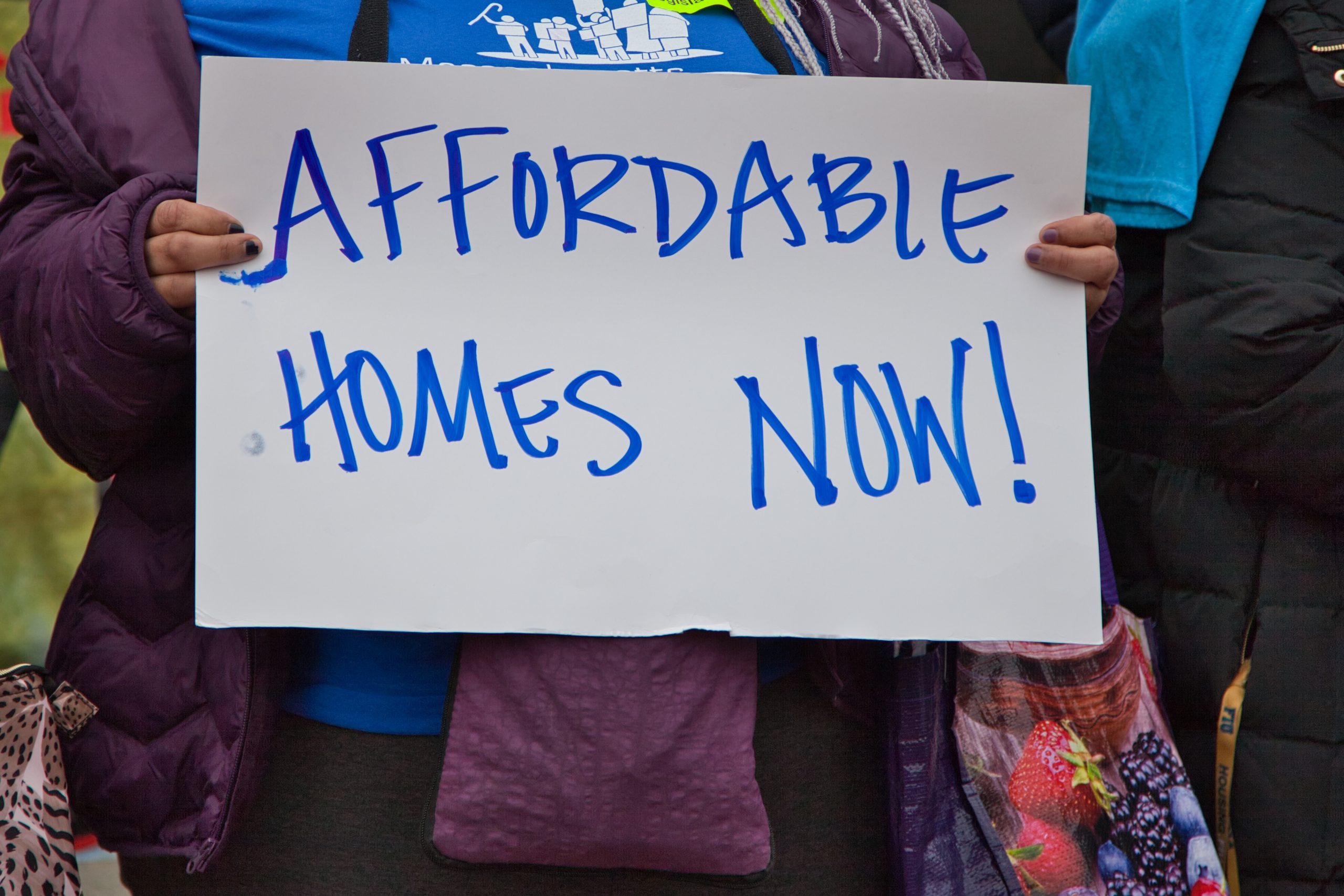The “Affordable Homes Now” measure submitted in March by a coalition of labor and housing advocates, has successfully collected the 52,000 signatures required to qualify for San Francisco’s November 2022 ballot. Citing a study by the Terner Center for Housing Innovation at UC Berkeley, the measure describes San Francisco’s four-year average to permit multifamily residential buildings as “one major obstacle to the goal of increasing affordable housing.” The measure attributes soaring housing costs to the difficulty many small businesses and essential service providers have with hiring and retaining workers, resulting in high turnover among public school and community college teachers. Finally, it notes that the lack of a “large, stable, and productive construction workforce” is a further constraint on housing production, driving delays, cost overruns, and safety incidents.
Affordable Homes Now takes aim at these issues with a program to bolster and expedite the production of local affordable housing by providing streamlined, ministerial approval for the following types of development:
- “100% Affordable Housing Projects,” in which (a) all residential uses are restricted as affordable housing with a maximum overall average income of 120%, and (b) maximum sales or rental prices do not exceed 80% of median market rents or sales for the neighborhood, as determined by the Mayor’s Office of Housing and Community Development (“MOHCD”). To provide for the “missing middle” that is not served by existing affordable housing programs, households earning up to 140% of AMI would be eligible for residency, so long as they comply with the overall average affordability requirements above. Qualifying projects may include non-residential use at the ground floor, and those accessory to and supportive of on-site housing;
- “Increased Affordable Housing Projects,” which contain 10 or more units, and agree to provide on-site affordable units in an amount that is 15% greater than otherwise required under the City’s Inclusionary Housing Program or local HOME-SF density program. For example, a project subject to a 21.5% on-site requirement under the Inclusionary Program would be required to make 24.7% of its units affordable under the Affordable Homes Now measure. In a 100-unit project, the total number of affordable units would increase from 22 to 25; and
- “Educator Housing Projects,” as currently defined in Planning Code Section 206.9. Among other criteria, this includes providing all residential units as deed-restricted for the life of the project for occupancy by at least one employee of the San Francisco Unified School District (“SFUSD”) or San Francisco Community College District (“SFCCD”); providing at least 4/5ths of all units as affordable to households with income ranging from 30%-140% of AMI, with the overall average of 100% AMI across all units, and the remaining 1/5th of all units affordable up to a maximum 160% AMI.
To protect historic buildings, recreational resources, prevent tenant displacement or development that would conflict with certain zoning standards or preexisting uses, the measure would not apply to Projects that:
- Remove or demolish historic landmarks, contributory buildings to a designated historic district, or Category I or II “significant” buildings under Article 11 of the Planning Code;
- Are located on Recreation and Parks Department property;
- Are located on sites not zoned for residential use;
- Demolish, remove, or convert any residential units, movie theaters, or nighttime entertainment use; or
- Include non-residential uses that require Conditional Use Authorization under the Planning Code.
Similar to the statewide SB-35 legislation which took effect in 2018, qualifying Affordable Homes Now projects that meet objective zoning standards would receive streamlined processing and be exempt from the California Environmental Quality Act (“CEQA”). Such projects would require no discretionary approvals by City Boards, commissions, or officials, and would not be subject to Discretionary Review. Associated building permits and other city permits necessary for construction would also receive streamlined, ministerial processing.
Projects qualifying under this measure could also utilize State Density Bonus Law to increase residential density, in which case any waivers, concessions or incentives would be considered consistent with objective zoning standards. However, for projects that do not utilize State Density Bonus Law, the measure would allow for administrative waivers or reductions from certain development standards including residential density; ground floor ceiling height; rear yard setback; dwelling unit exposure; loading; parking and open space.
Affordable Homes Now projects would not be required to submit for a Preliminary Project Assessment before filing a formal development application. Following submission of a complete development application, the City would have approximately six to nine months to approve qualifying projects, depending upon the number of residential units they contain.
Finally, the measure aims to attract a larger, more stable, and skilled construction workforce by setting minimum labor standards for Affordable Homes Now projects. These standard scale up based on the size of a project:
- 10+ units – All workers must be paid at least the applicable prevailing wage.
- 40+ units – In addition to the prevailing wage requirements, contractors that will employ construction craft employees for 1,000 or more hours are (a) required to provide medical insurance or make an $11.90/hour contribution to Healthy San Francisco per hour worked up to a weekly maximum of $476 and participate in state-approved apprenticeship programs; or (b) use contractors that are a signatory to a collective bargaining agreement that requires participation in a state-approved apprenticeship program. If no apprentices are available, projects may move forward without delay. The labor requirements are to be monitored through San Francisco’s Office of Labor Standards Enforcement, with contractors and subcontractors required to submit monthly reports confirming compliance with the above standards. Failure to submit a monthly report is subject to a $10,000 fine per month for each month the report is not provided, as well as fines of $200 per worker per day employed in contravention of Affordable Homes Now requirements.
The Affordable Homes Now Initiative is proposed by a coalition of labor and housing advocates, including the Nor Cal Carpenters Union; Housing Action Coalition; Habitat for Humanity; Greenbelt Alliance; YIMBY Action; SPUR; and Grow SF. It is backed by Mayor London Breed; Senator Scott Weiner; and Supervisor Matt Dorsey. The 52,000 signatures gathered to place the measure on the ballot represent more than 10 percent of registered San Francisco voters.
Authored by Reuben, Junius & Rose, LLP Attorneys Melinda Sarjapur and Daniel Frattin.
The issues discussed in this update are not intended to be legal advice and no attorney-client relationship is established with the recipient. Readers should consult with legal counsel before relying on any of the information contained herein. Reuben, Junius & Rose, LLP is a full service real estate law firm. We specialize in land use, development and entitlement law. We also provide a wide range of transactional services, including leasing, acquisitions and sales, formation of limited liability companies and other entities, lending/workout assistance, subdivision and condominium work.



